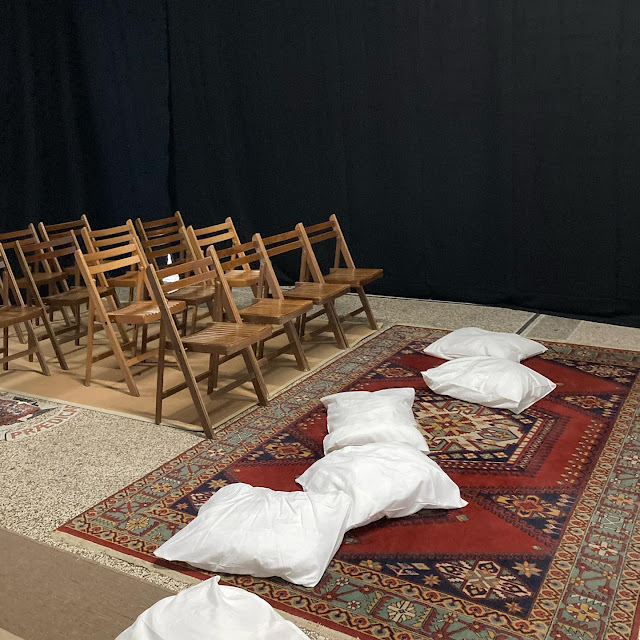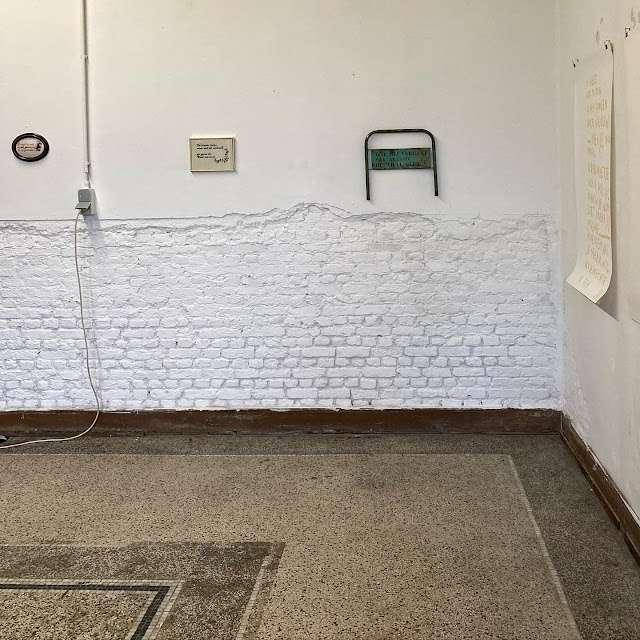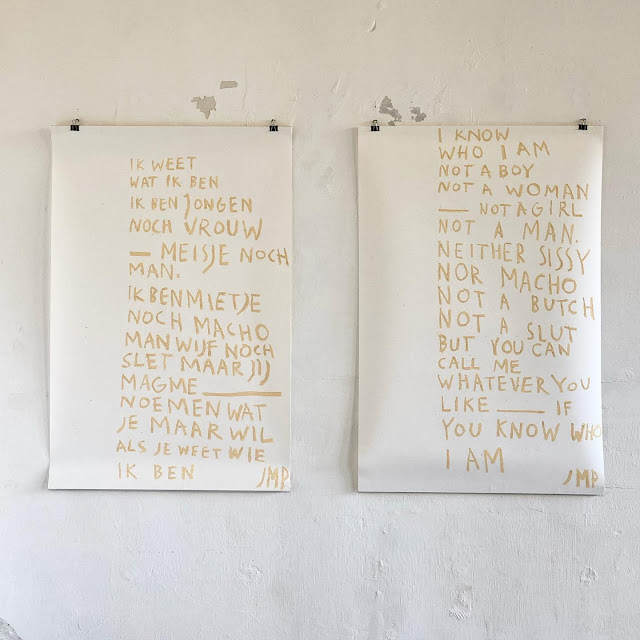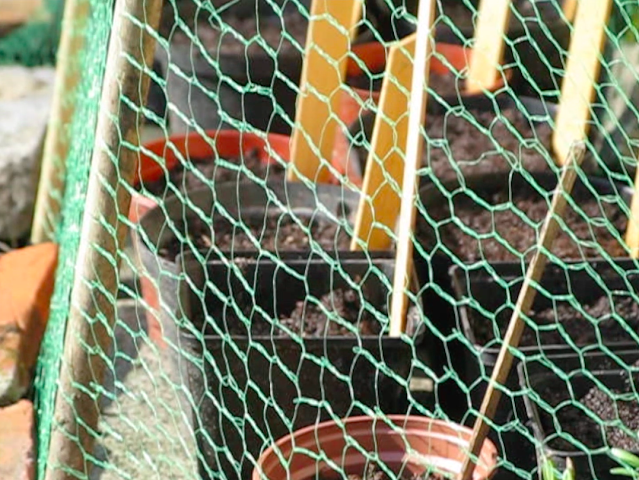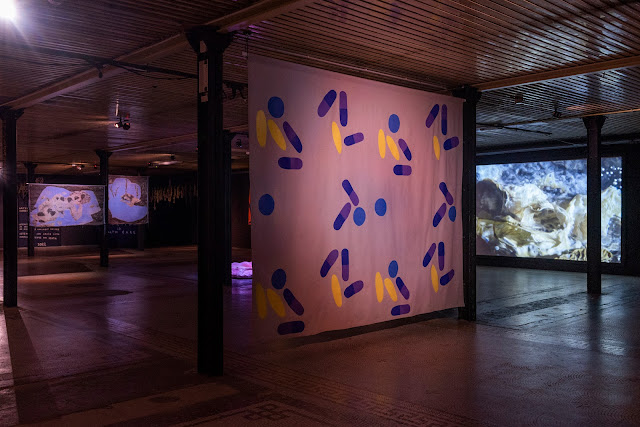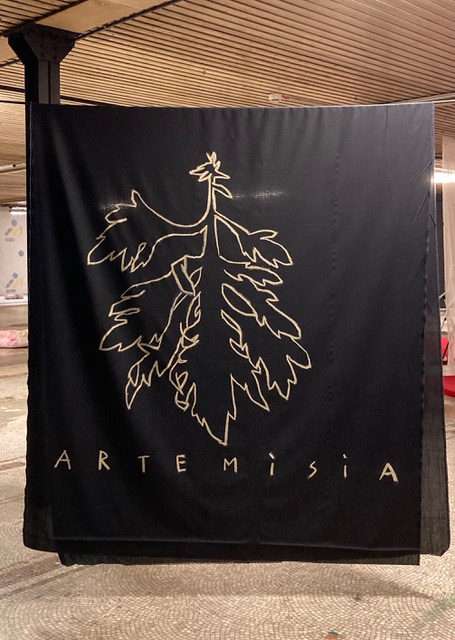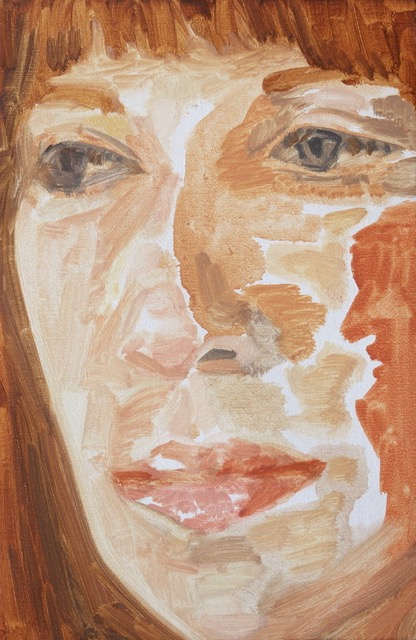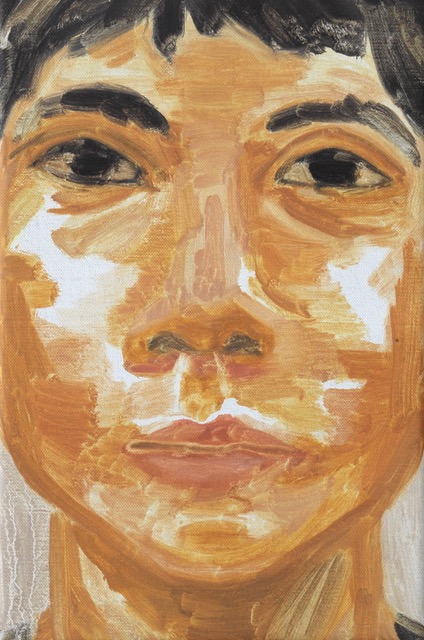An Art & Ecology project and research into gardening as artistic practice.
In September 2022 I started a one year research at the Royal Academy of Antwerp. For the duration of an Academic year I shift my practice towards organising a community garden together with the art students. We meet weekly to garden together in the historical garden of the Academy.
Sympoiesis means 'making together', it comes from the book Staying with the Trouble by Donna Haraway. In the garden we work towards restoring ecology from a non-human-centred perspective based on the books of Donna Haraway, Anna L. Tsing, Robin Wall Kimmerer, Jamaica Kincaid and many more. We focus on diversity in plants, soil, critters, patches, views and techniques. We try to decolonize the garden practice and take up a multicultural and non-binary practice.
Climate change is only going to become more important, and many artists care about how they can help. In order to find an meaningful approach with ecology it is interesting to work from a pratice based on understanding: to really engage with soil, plants, birds, insects...
Working with nature goes both ways, it will restore ecology in the garden and it will inspire new ways of thinking within an artistic practice. This change of perspective is a shift towards a multitude existing together, a thinking with. When we touch nature, nature touches us, and the trees, stones and compost become meaningful, together we make sense.
The historical garden of the Royal Academy is a protected area, with a landscape design from 1905 and to be able to open up this garden to work together is a meaningful and very important change in the whole ecology of the Academy. Now we have a place where we can interact and study with nature.
I am writing a detailed page on the continuation of the project: the changes in the gardens and what comes in to live with us on a separate page: https://elinedc.blogspot.com/p/the-royal-academy-of-antwerp-garden.html
You can also follow the instagram profile: https://www.instagram.com/royalacademyantwerpgarden/
During this year I keep my studio practice and continue to paint, draw, photograph, film, write and all the other things I like to do in a studio but it will be less vocal. The Gesamthof, A Lesbian Garden continues as well and is very much connected to this research, this tiny ecology is in a healthy condition and getting better all the time. The spill over effect of lots of plants in a small place means we can share seedlings and divide and share plants with the garden community to increase the diversity in the Academy gardens.
Both projects, the Gesamthof and the Sympoiesis Garden, are pioneering in art & ecology, they are among the first and we invent new futures as we go along. There is a lot of groundwork to be done and we can do this because of the support and interest from both within and outside the Academy.
 |
| The historical garden of the Academy of Fine Arts is located in the cente of the city of Antwerp. |
 |
| The communication started with anonymous notes left in various places in the Academy to keep expectations open. |
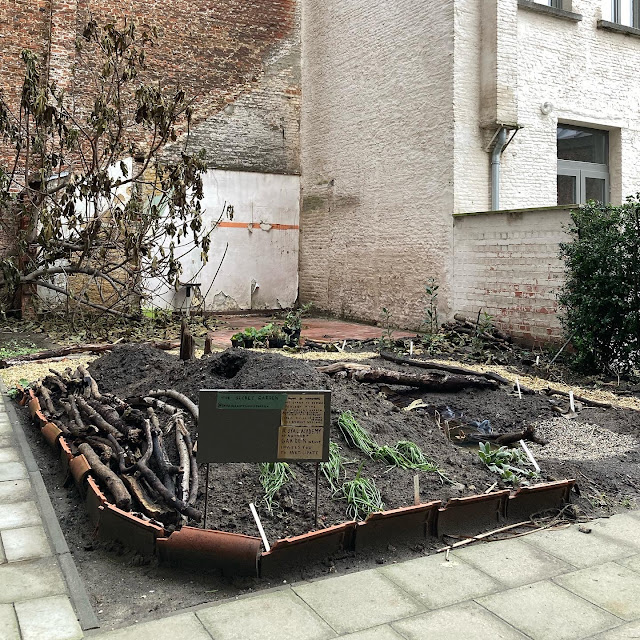 |
| The secret garden was a bare patch of ground and we built a natural pond for biodiversity. |
 |
| We start small, it's not about reaching a deadline, this project is ongoing in its very nature. |
 |
| We work from a multispecies perspective, this is not about beauty or produce in a human-centred design. |
 |
| The plants and seeds are mostly leftovers from the Gesamthof and selected for the context in the Academy: a woodland patch or a secret garden. |

